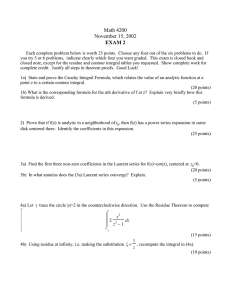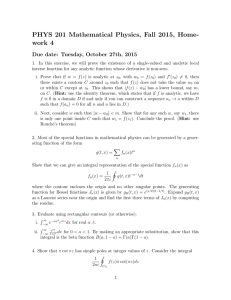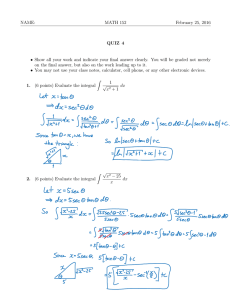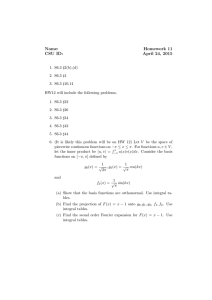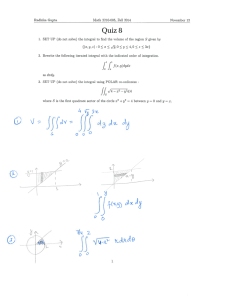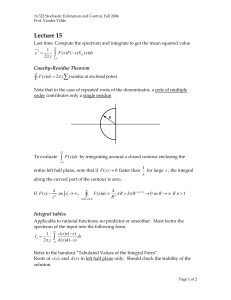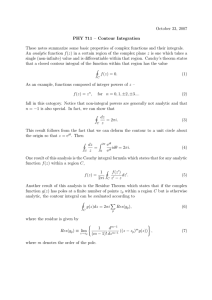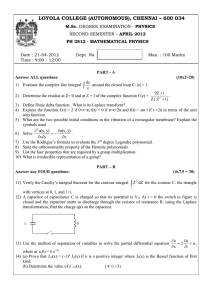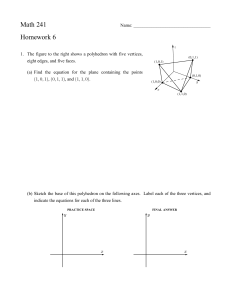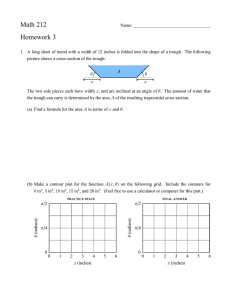Complex Variables II PROBLEM SET 10 (Final problem set) √
advertisement
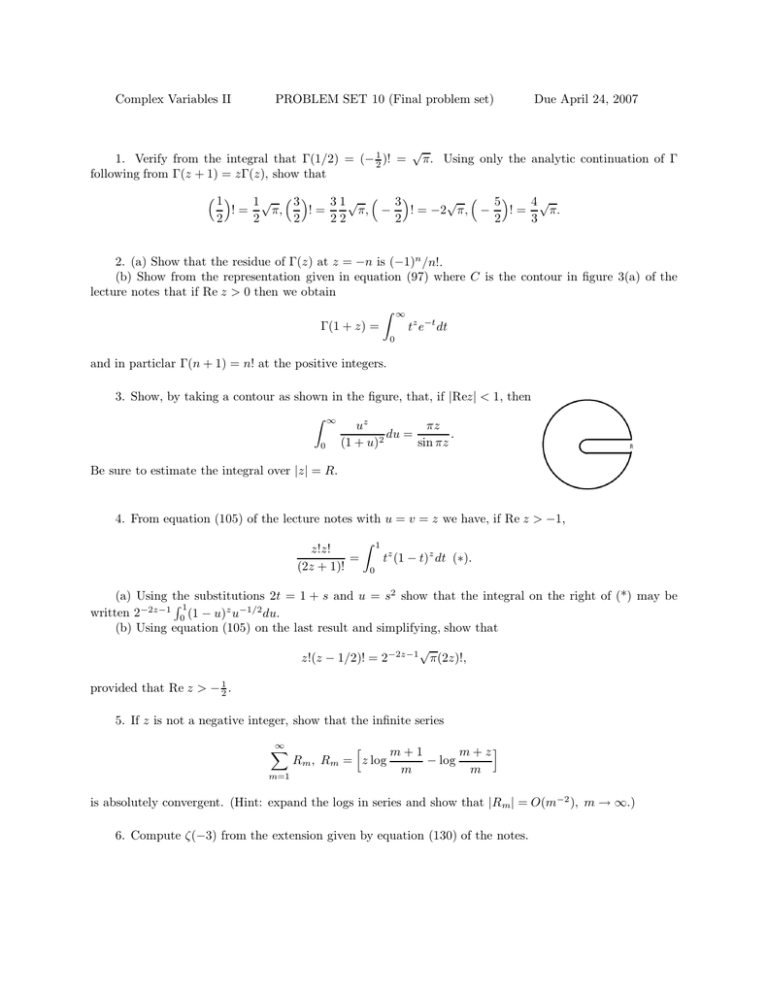
Complex Variables II PROBLEM SET 10 (Final problem set) 1. Verify from the integral that Γ(1/2) = (− 12 )! = following from Γ(z + 1) = zΓ(z), show that √ Due April 24, 2007 π. Using only the analytic continuation of Γ 1 √ 5 1√ 3 3 1√ 3 4√ π, π, − π. != != ! = −2 π, − != 2 2 2 22 2 2 3 2. (a) Show that the residue of Γ(z) at z = −n is (−1)n /n!. (b) Show from the representation given in equation (97) where C is the contour in figure 3(a) of the lecture notes that if Re z > 0 then we obtain Z ∞ Γ(1 + z) = tz e−t dt 0 and in particlar Γ(n + 1) = n! at the positive integers. 3. Show, by taking a contour as shown in the figure, that, if |Rez| < 1, then Z ∞ 0 uz πz du = . (1 + u)2 sin πz Be sure to estimate the integral over |z| = R. 4. From equation (105) of the lecture notes with u = v = z we have, if Re z > −1, z!z! = (2z + 1)! Z 1 tz (1 − t)z dt (∗). 0 (a) Using the substitutions 2t = 1 + s and u = s2 show that the integral on the right of (*) may be R1 written 2−2z−1 0 (1 − u)z u−1/2du. (b) Using equation (105) on the last result and simplifying, show that √ z!(z − 1/2)! = 2−2z−1 π(2z)!, provided that Re z > − 12 . 5. If z is not a negative integer, show that the infinite series h m+1 m+ zi Rm , Rm = z log − log m m m=1 ∞ X is absolutely convergent. (Hint: expand the logs in series and show that |Rm| = O(m−2 ), m → ∞.) 6. Compute ζ(−3) from the extension given by equation (130) of the notes.
